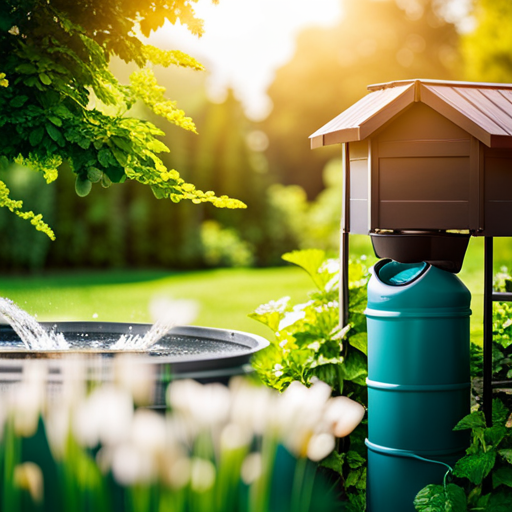Are you looking for a way to soften your water while also being environmentally conscious? Look no further than potassium chloride. This eco-friendly alternative to traditional salt not only provides the same benefits of softened water, but it also doesn’t add sodium to your water supply.
Potassium chloride can be used in virtually any water softener, making it an easy switch for those who want to go green. It’s a popular choice among homeowners who are looking to reduce their carbon footprint and make their homes more sustainable.
In this article, we’ll explore the benefits and advantages of potassium chloride, compare it to sodium chloride, and provide tips on how to switch to this eco-friendly option for water softening. So, let’s dive in and see how you can go green with potassium chloride.
Key Takeaways
– Potassium chloride is an eco-friendly alternative to traditional salt for water softening.
– It provides the same benefits as softened water without adding sodium, making it a better option for low-sodium diets and high blood pressure.
– While potassium chloride is generally more expensive than sodium chloride, it has a positive environmental impact and is safe for septic systems and plumbing appliances.
– Switching to potassium chloride requires draining the brine tank, refilling with new salt, and adjusting settings as needed.
Benefits and Advantages
You’ll be pleased to know that there are several benefits and advantages to using potassium chloride as a safe and eco-friendly alternative to conventional salt for your water softener.
One of the most significant benefits is its positive environmental impact. Unlike sodium chloride, potassium chloride does not contribute to the discharge of harmful sodium into water systems. This makes it an excellent option for individuals who are conscious of their environmental footprint and want to reduce their impact on the planet.
Another advantage of using potassium chloride is its cost-effectiveness. While it may be more expensive than sodium chloride, it’s still a cost-effective option in the long run. This is because potassium chloride is a complete regeneration of ion exchange resin, which means it can be used in virtually all water softeners.
Additionally, it’s safe for septic systems and plumbing appliances, making it a reliable and durable choice for homeowners. Overall, potassium chloride is a great option for those who want to enjoy the benefits of softened water without added sodium while also being environmentally conscious and cost-effective.
Comparison with Sodium Chloride
Comparing potassium chloride to sodium chloride for water softeners, it’s important to consider the potential impact on sodium intake and the environment.
While both salts are effective in softening water, potassium chloride is a better option for individuals on low-sodium diets or with high blood pressure. On the other hand, sodium chloride may not be suitable for those who want to reduce their sodium intake.
Cost comparison is another factor to consider when choosing between the two salts. Potassium chloride is generally more expensive than sodium chloride.
However, the environmental impact of sodium chloride on water systems cannot be ignored. Sodium chloride can contribute to the discharge of harmful sodium into water systems, which can affect aquatic life and cause other environmental problems.
In contrast, potassium chloride is a safe and eco-friendly option that can be used in most water softeners without modifications.
Switching to Potassium Chloride
To switch to potassium chloride, simply drain your brine tank, refill it with the new salt, and adjust the settings as needed for optimal performance. However, there are some potential drawbacks to consider. For instance, potassium chloride is generally more expensive than conventional sodium chloride. Also, approximately 27% more potassium chloride is needed to achieve effective softening due to its higher molecular weight.
To ensure optimal performance, it’s important to make the necessary adjustments to your water softening system when switching to potassium chloride. This may include adjusting the regeneration cycle and the amount of salt used during each cycle. It’s also important to note that potassium chloride is not recommended to be mixed with sodium chloride.
However, with a little bit of effort, you can easily make the switch and enjoy the many benefits of softened water without any of the negative impacts of added sodium.
Conclusion
Congratulations on considering potassium chloride as an eco-friendly alternative to traditional salt for water softening. By making this switch, you’re not only benefiting the environment but also your health.
Potassium chloride is safe for consumption, making it a perfect choice for those who have to watch their sodium intake. Moreover, it’s compatible with all water softeners and requires no additional adjustments, making it a hassle-free switch.
So, if you want to go green without compromising on the quality of your water, potassium chloride is the way to go. Give it a try, and you won’t be disappointed.
